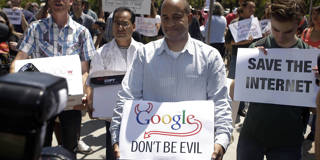As in the days of the robber barons, "villainous" business behavior has once again become a cultural touchstone in the United States. But while it is tempting to focus on individual personalities, the bigger problem is an institutional environment that no longer holds bad actors accountable.
BOSTON – Are successful businesspeople more like heroes or villains? In fictional accounts, one can find plenty of examples of each, from Charles Dickens’s miserly Ebenezer Scrooge to Ayn Rand’s rugged individualist entrepreneur John Galt. In F. Scott Fitzgerald’s The Great Gatsby, Tom Buchanan represents privileged old money, with its ruthlessness and incapacity for empathy, whereas Jay Gatsby is a self-made millionaire with no shortage of sentimentality and idealism.

BOSTON – Are successful businesspeople more like heroes or villains? In fictional accounts, one can find plenty of examples of each, from Charles Dickens’s miserly Ebenezer Scrooge to Ayn Rand’s rugged individualist entrepreneur John Galt. In F. Scott Fitzgerald’s The Great Gatsby, Tom Buchanan represents privileged old money, with its ruthlessness and incapacity for empathy, whereas Jay Gatsby is a self-made millionaire with no shortage of sentimentality and idealism.